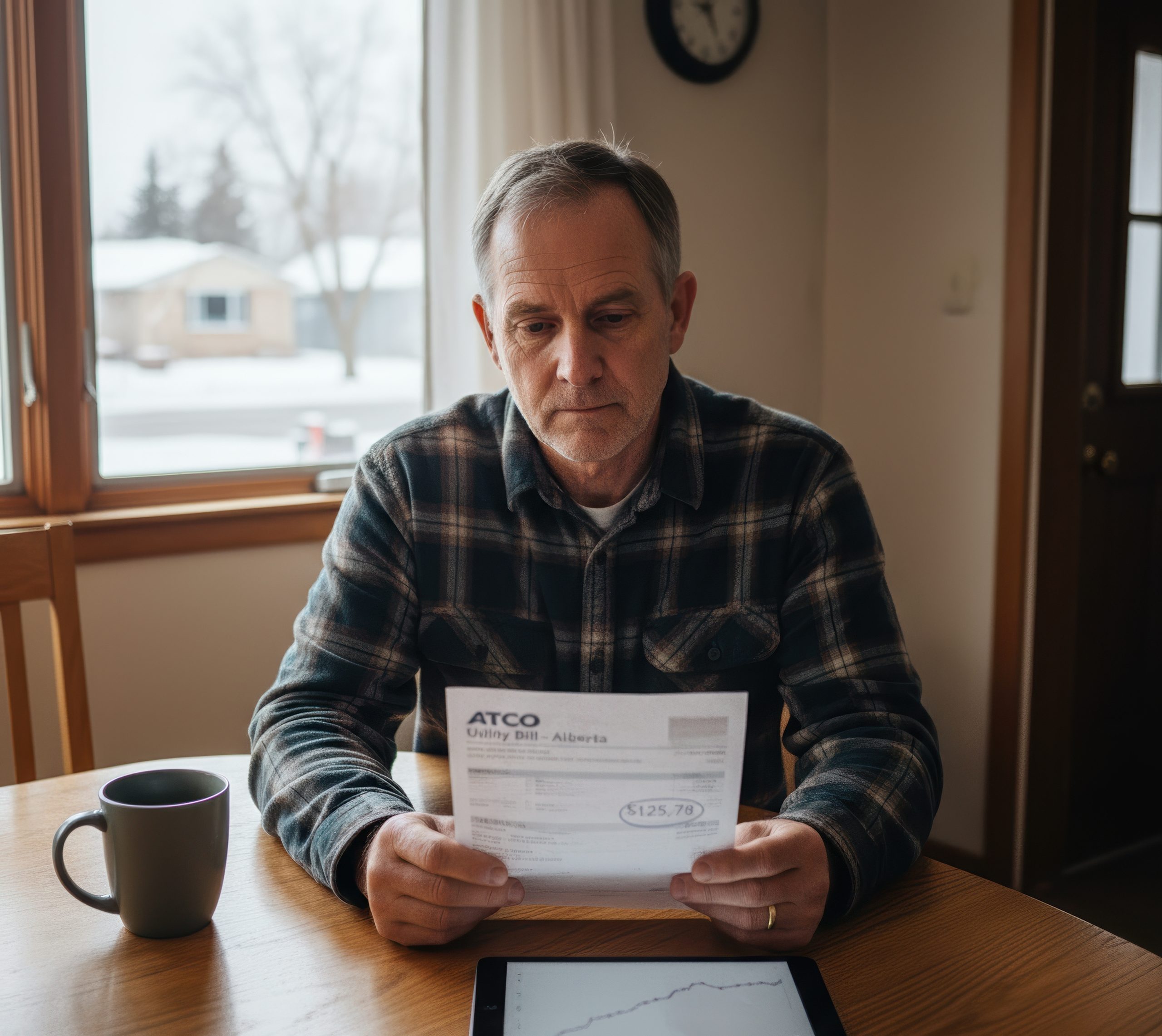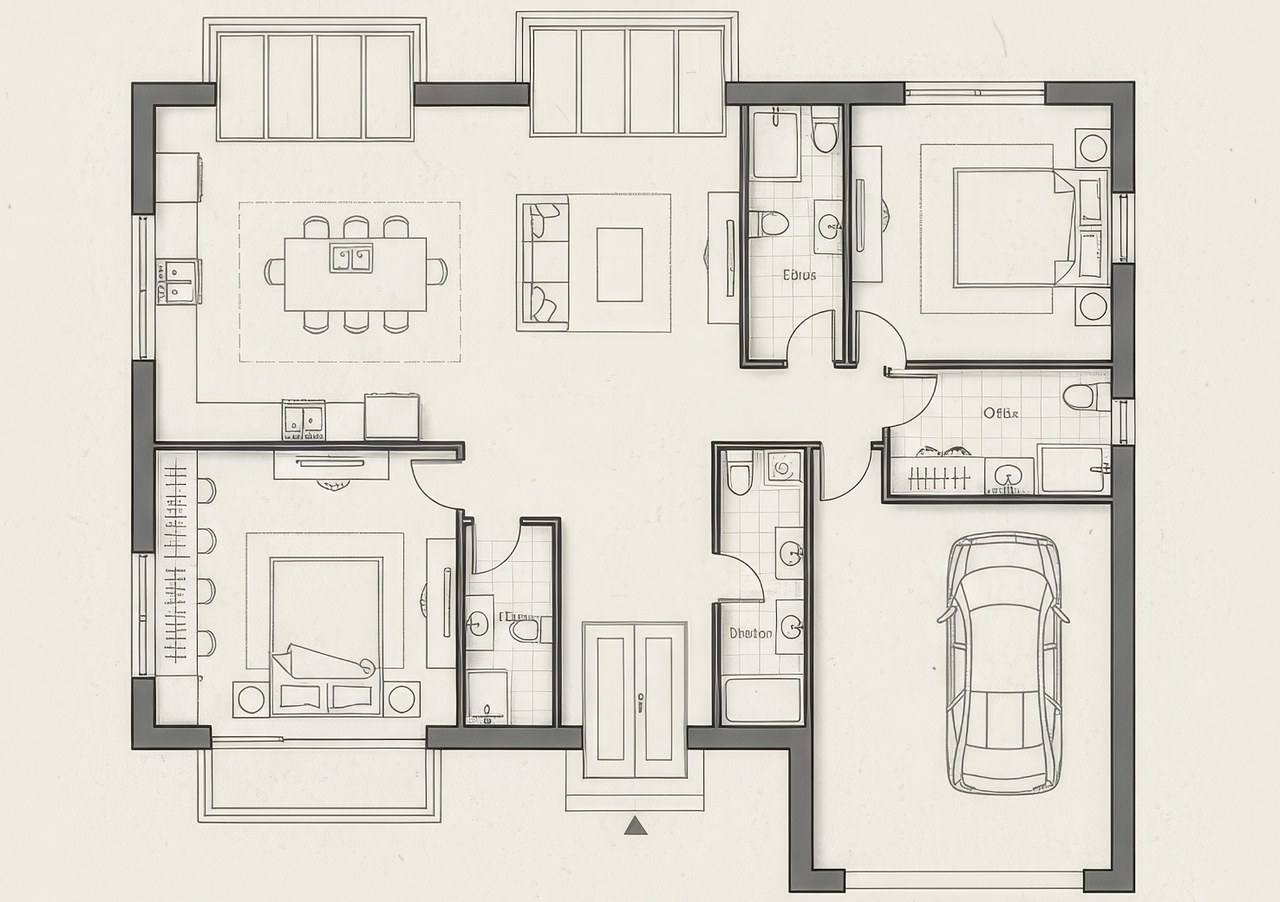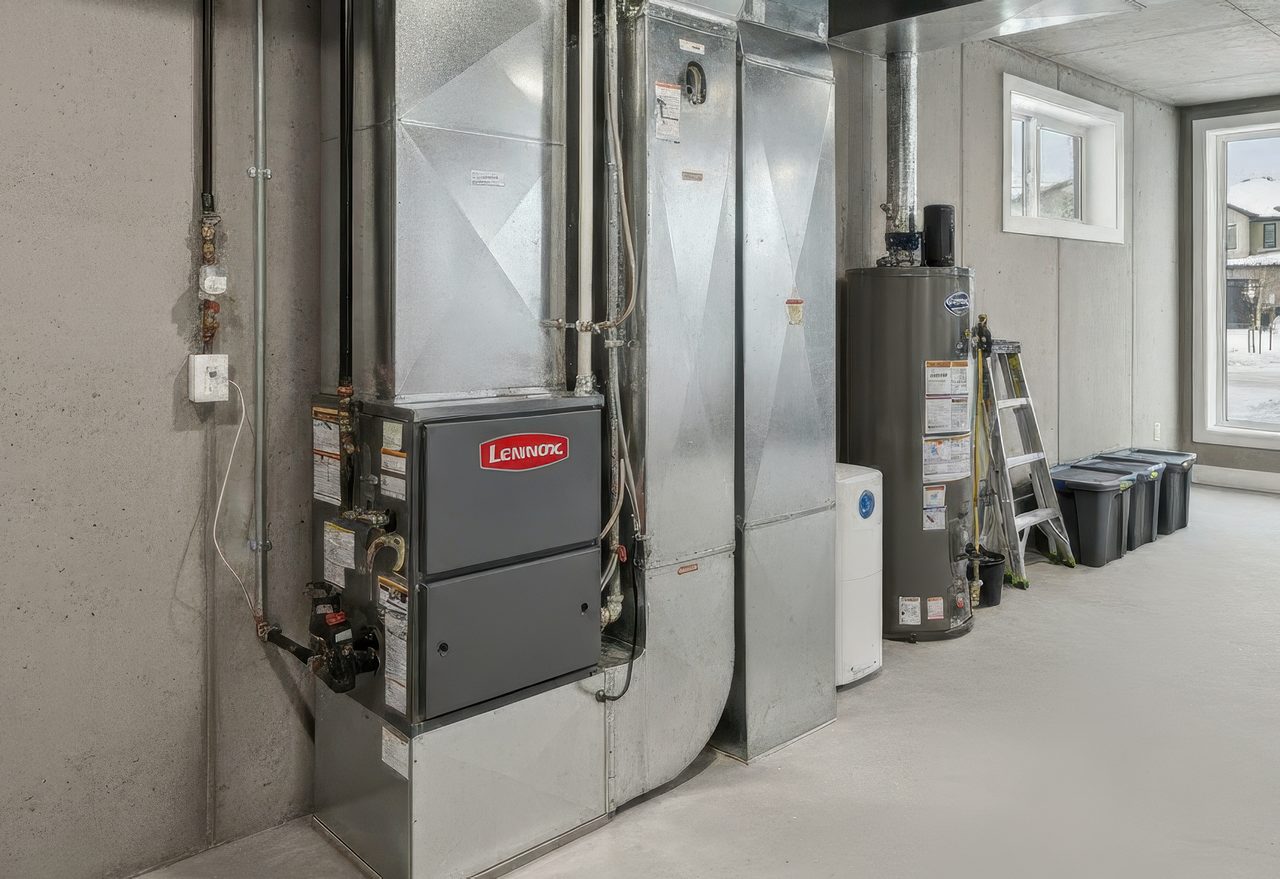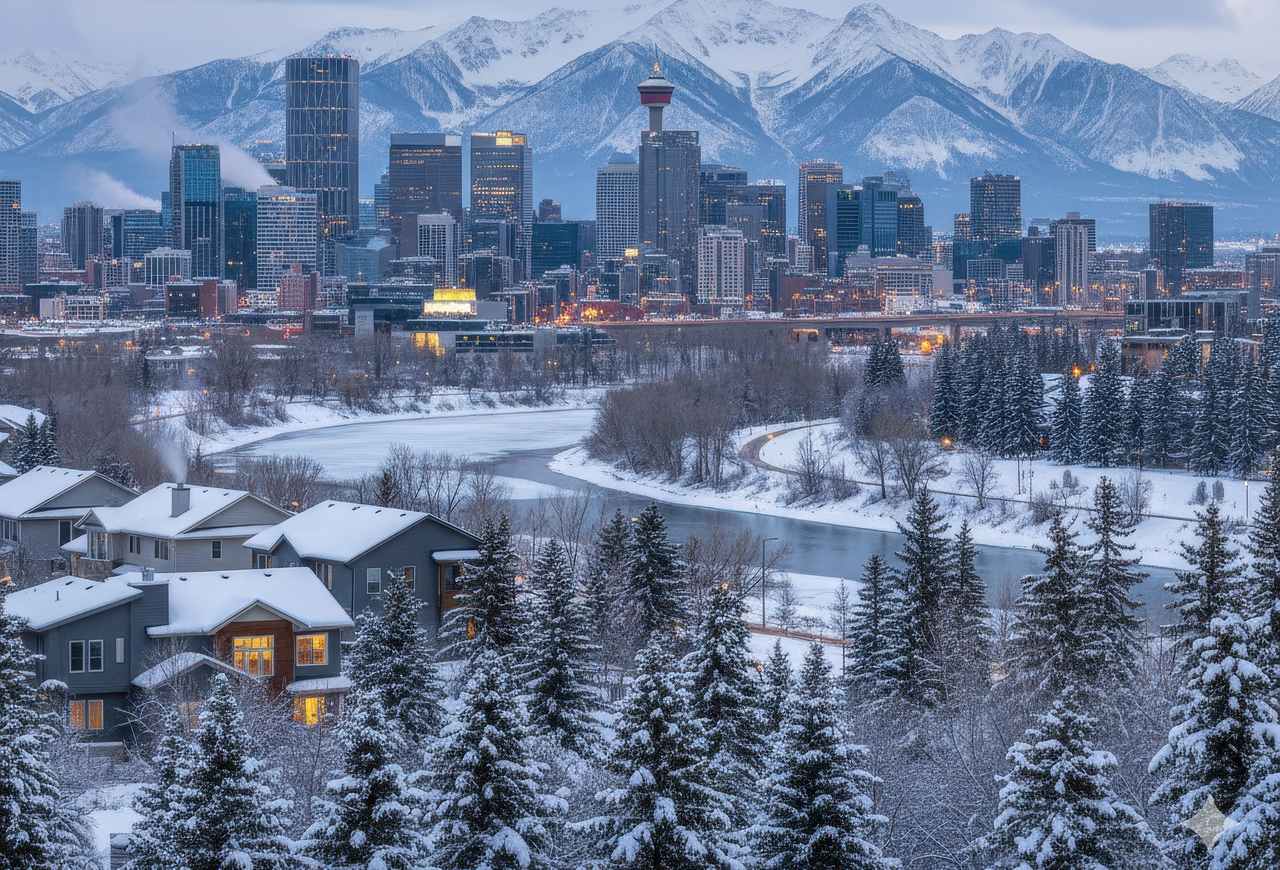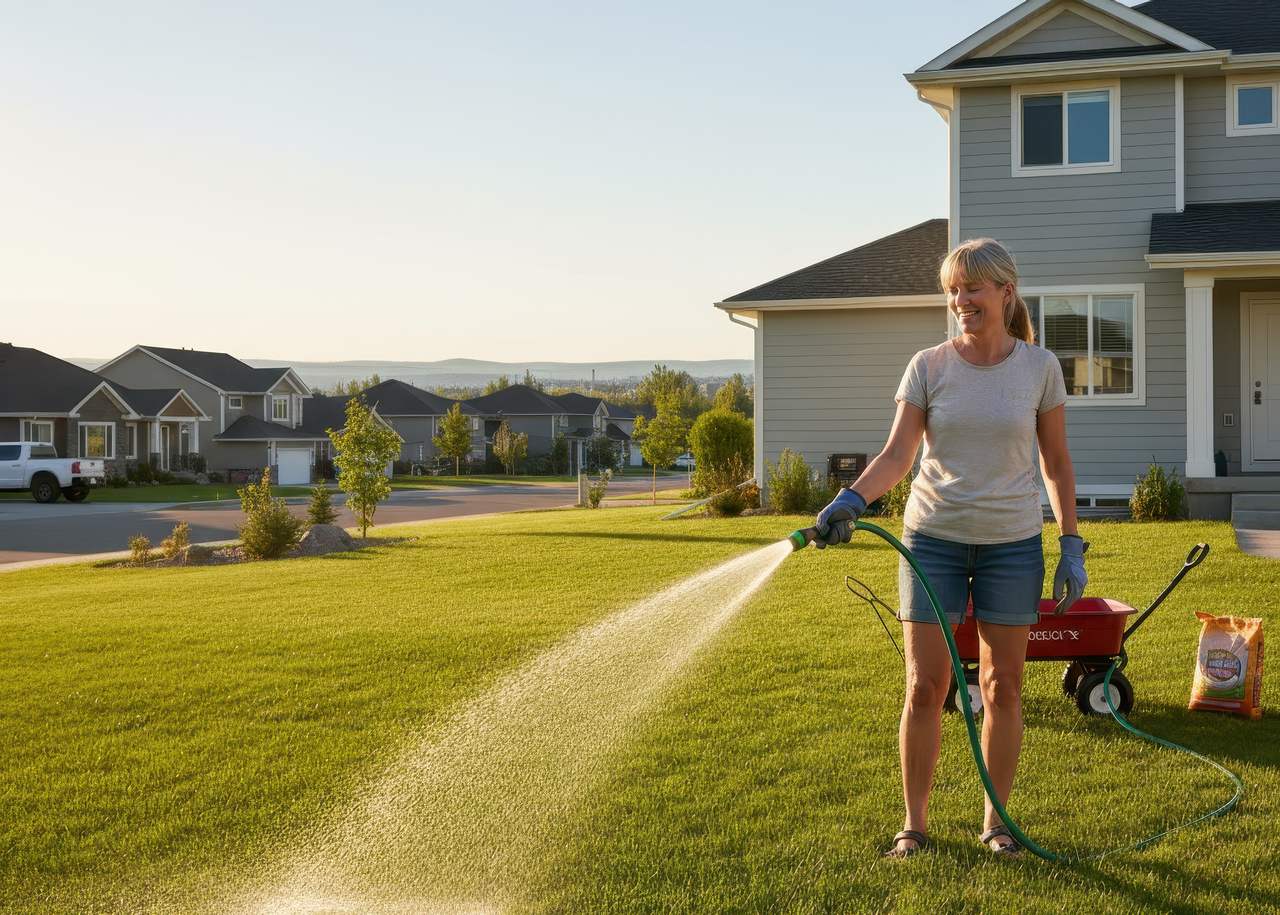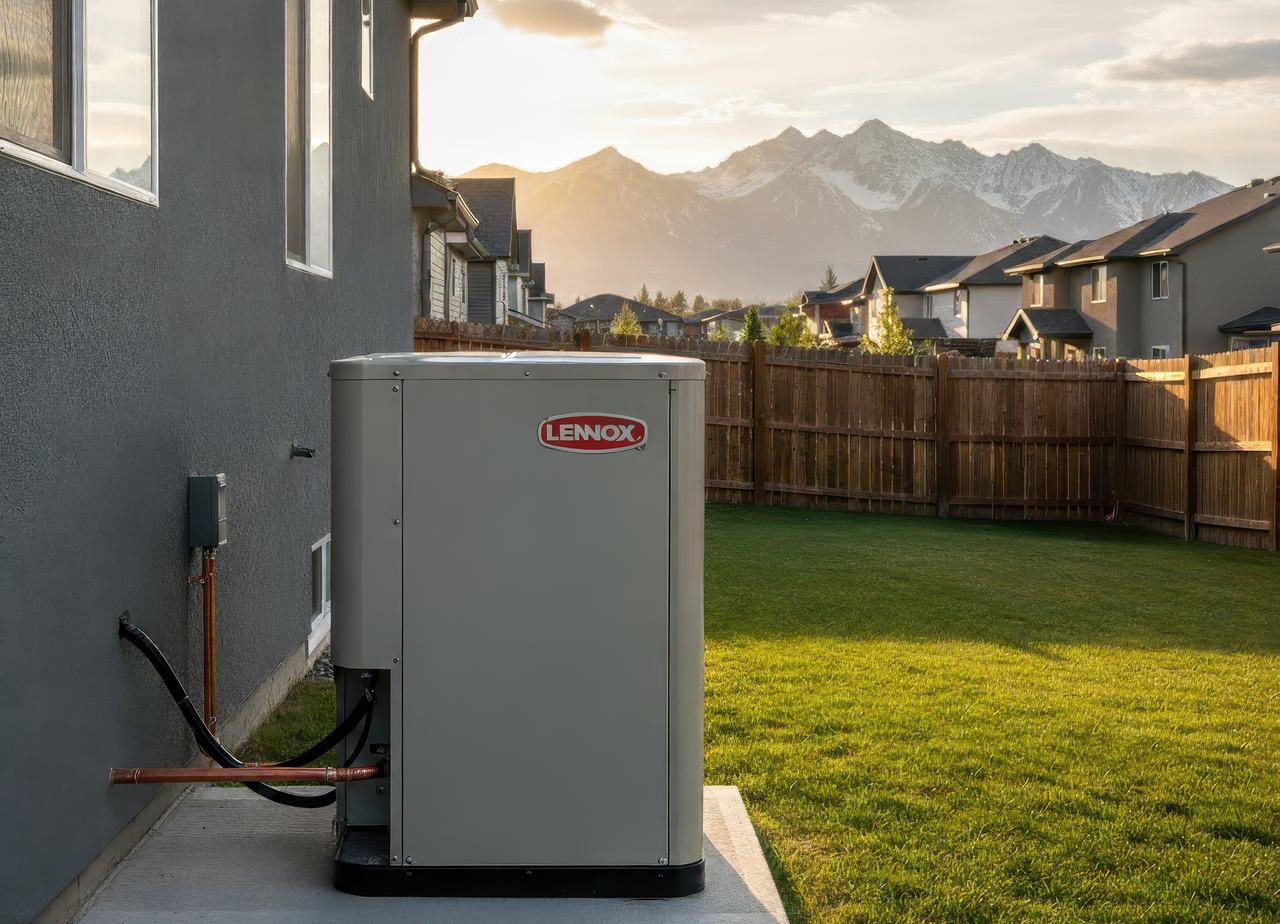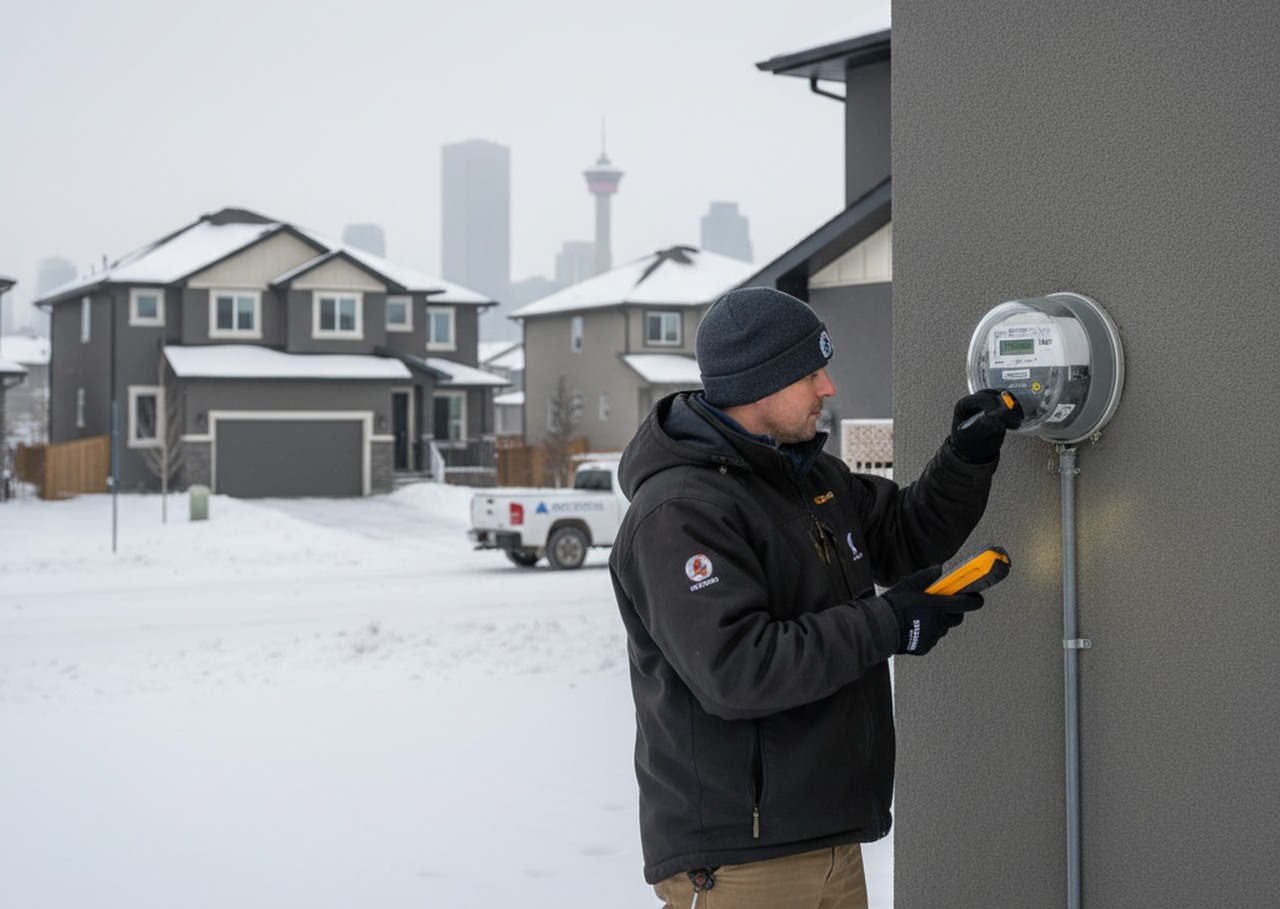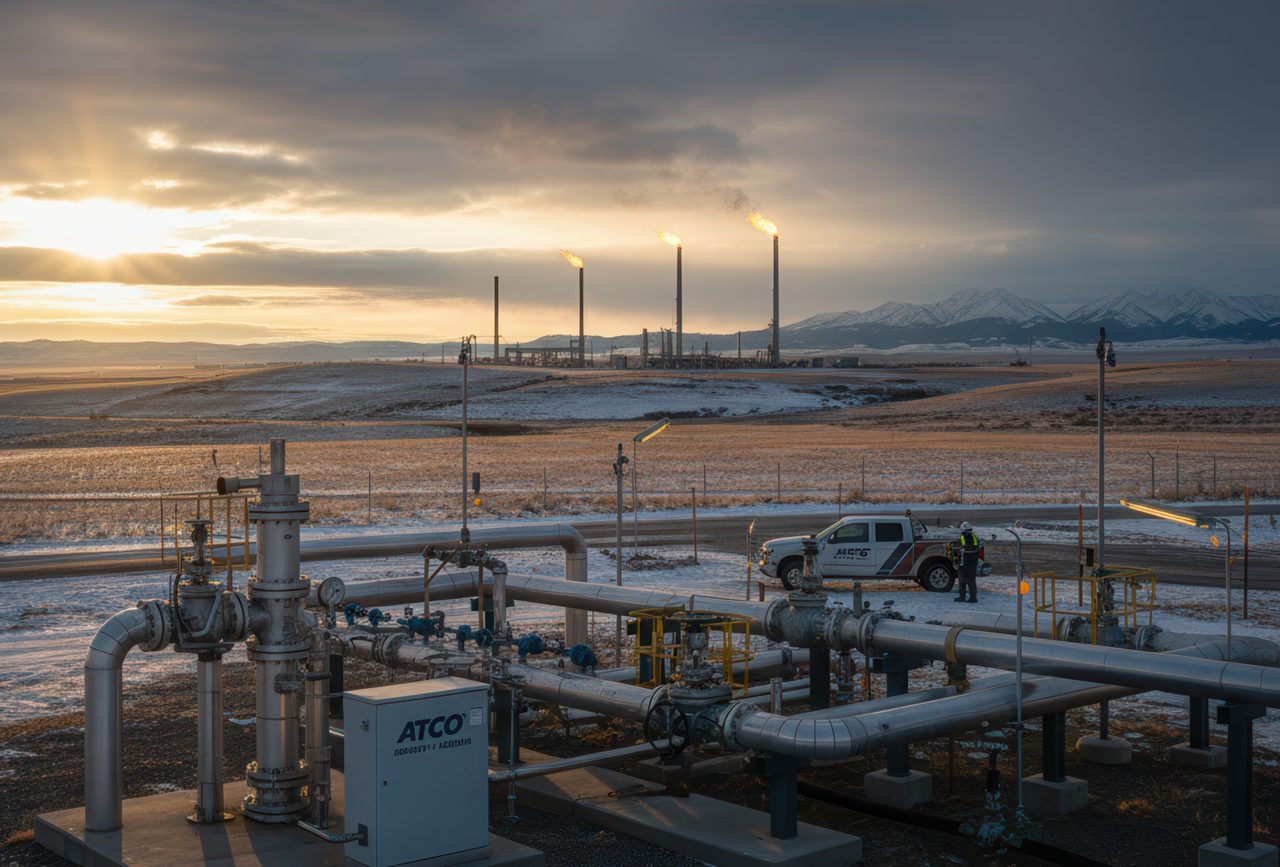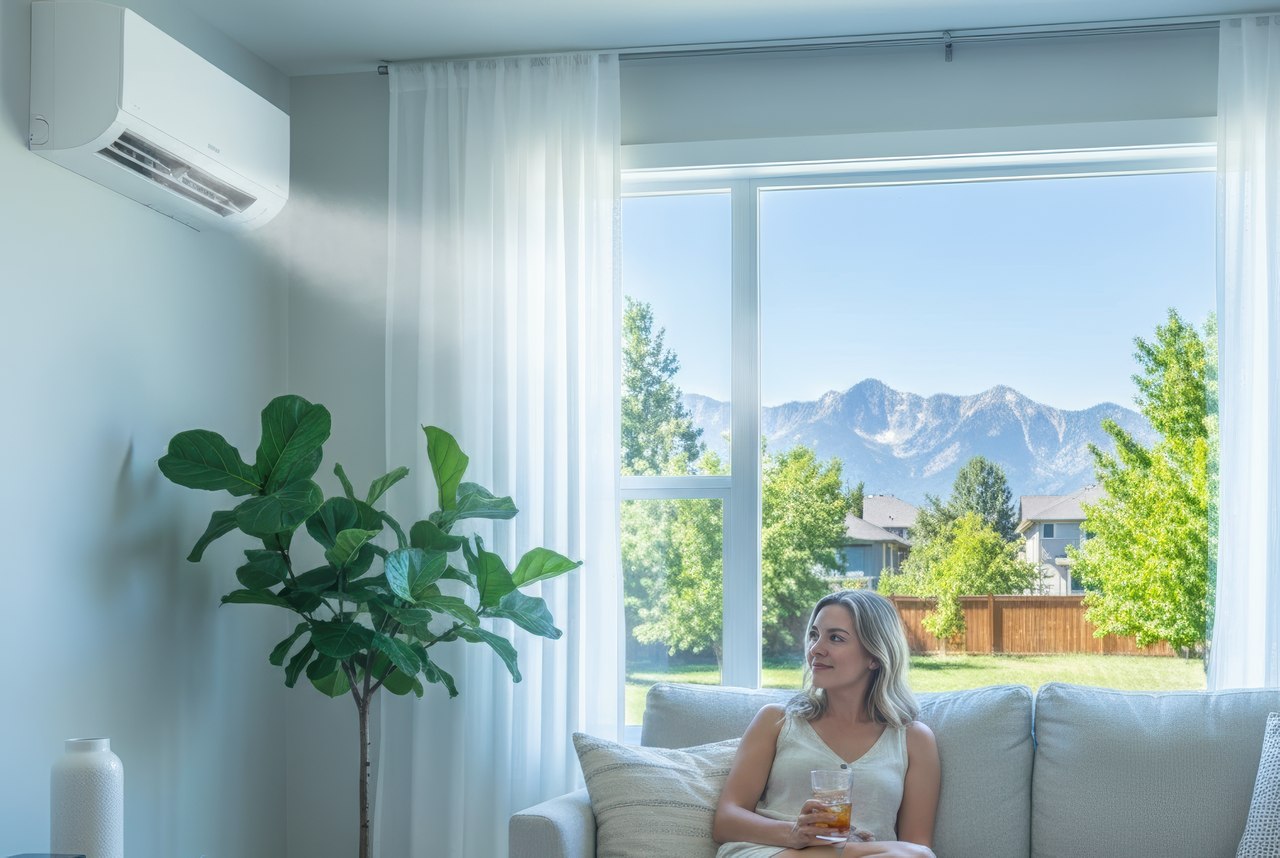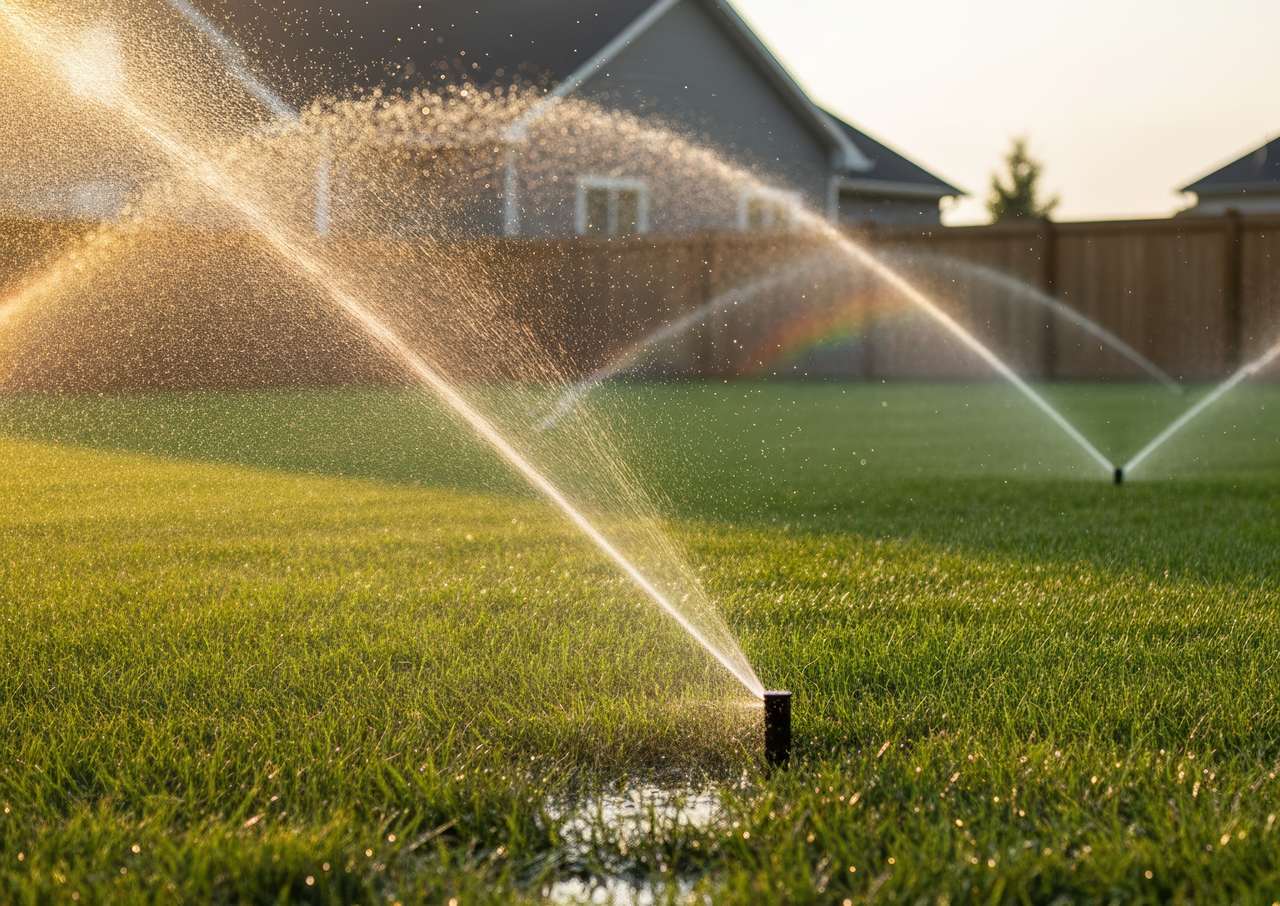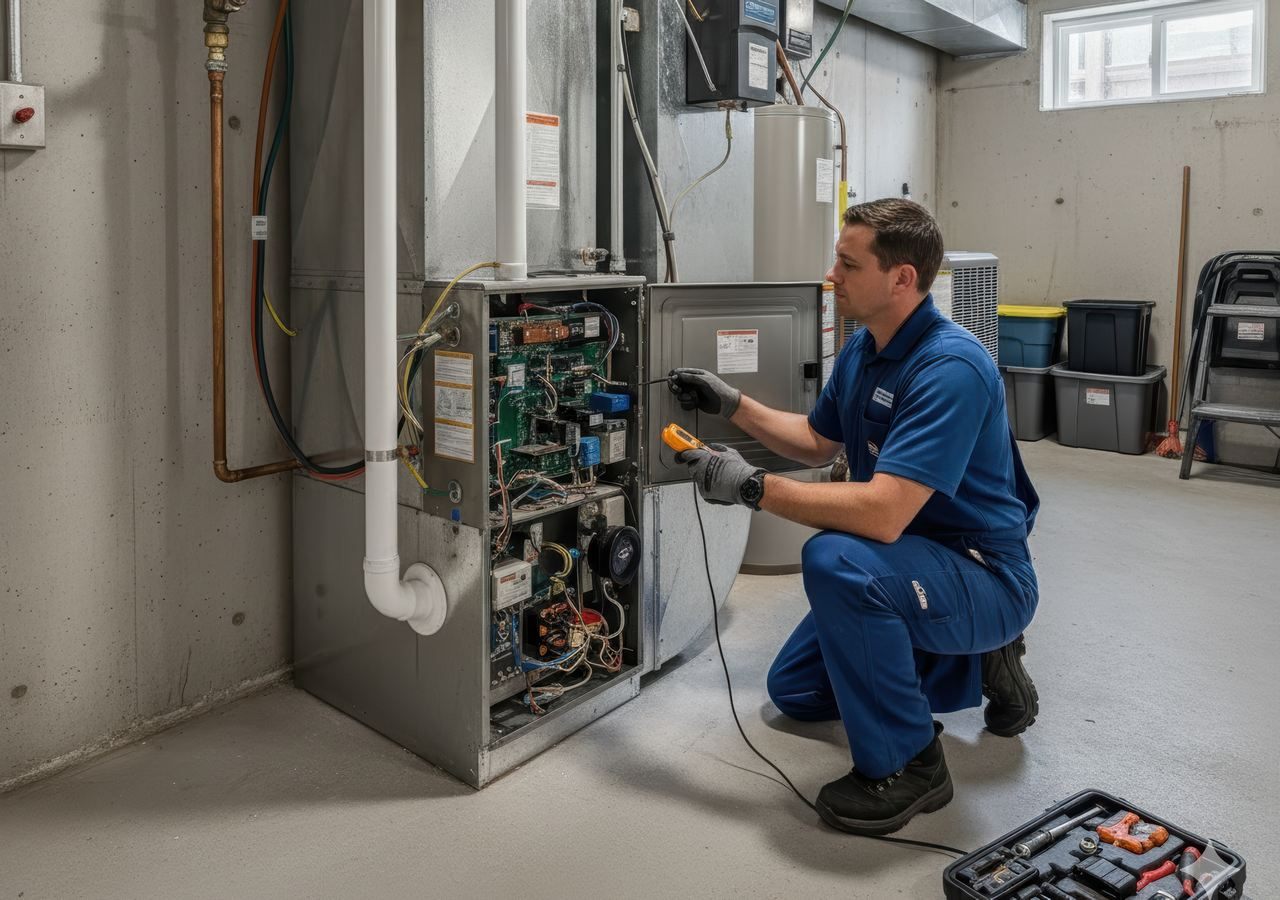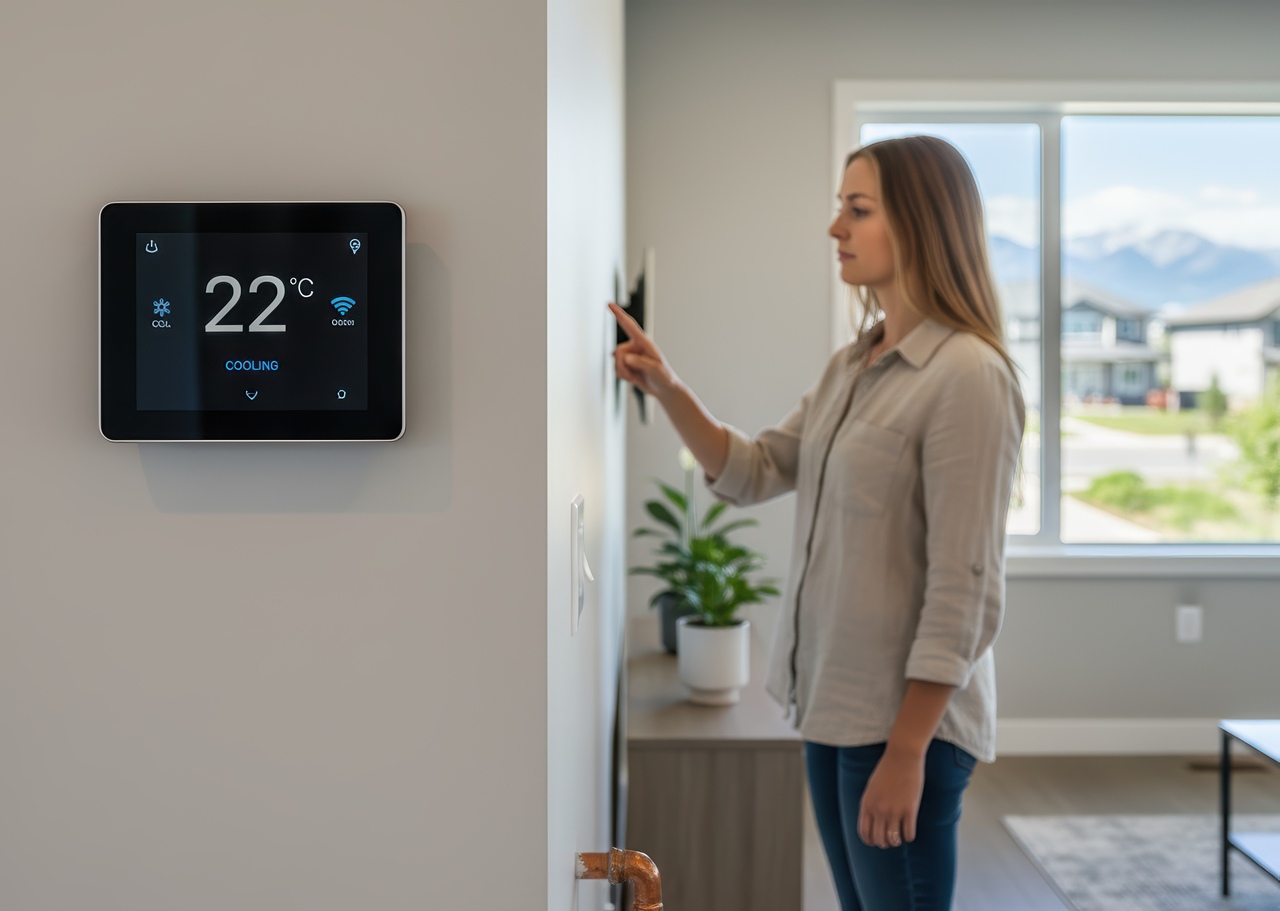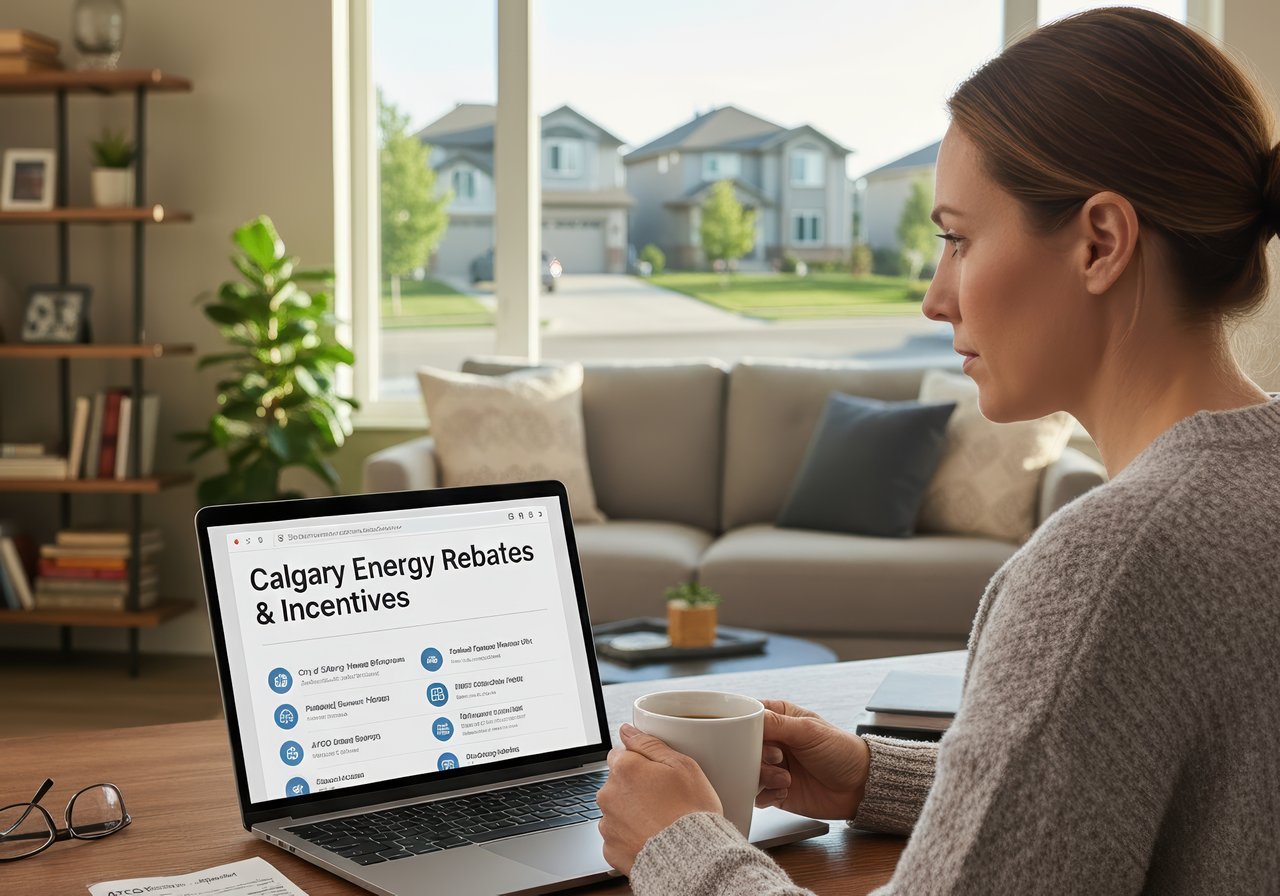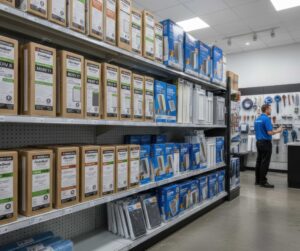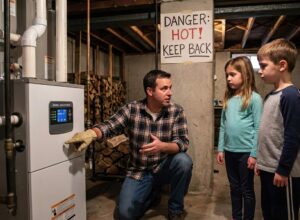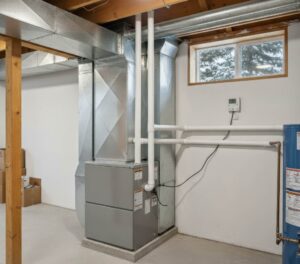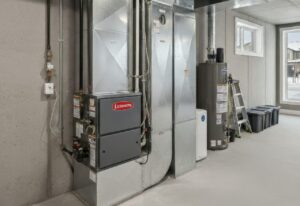As Calgarians try to meet the rising cost of living, working out the average utility costs in their homes is a useful starting point.
The average utility costs in Calgary vary from home to home, supplier to supplier, and season to season. Our unpredictable climate can defy average estimates because, for many households, heating and cooling the home accounts for a large proportion of the monthly utility bills.
So that you can budget effectively, maintain energy efficiency, and make the right heating and cooling decisions for your home, let’s dive deeper into the average utility costs in Calgary…
Average Utility Costs in Calgary
The average-sized home in Calgary (1,200–1,400 sq. ft.) should expect to pay around CAD $230-$470 per month in total for the main utilities. This includes $280-350 per month for gas and electricity, plus another $50-120 for water, sewer, and waste.
Utility costs vary with home size/layout, the age and energy efficiency of the home/HVAC setup, number of occupants, season, and other factors. Non-energy-related utilities like internet/cable are extra.
Let’s go deeper into this…
MAKE THE RIGHT HEATING & COOLING DECISIONS…
For over two decades, Alberta Mountain Air has helped Calgarians solve heating and cooling problems and maintain ideal comfort levels. Get in touch online for a quote.
What Factors Impact Utility Costs in Calgary?
A household’s monthly utility costs are affected by multiple factors, including home characteristics, occupant numbers/habits, and local energy prices.
Home Size
The average-sized home in Calgary is around 1,200-1,400 square feet (mean interior size), though yours may be much larger or smaller than this average. This affects how much energy is required to heat, cool, and light the space.
Home Layout
Open-plan layouts can lead to higher heating or cooling costs as it can be harder to maintain consistent temperatures.
Home Age and Energy Efficiency
Older homes often have less efficient insulation, outdated windows, or older HVAC systems that inflate utility costs compared to newer homes.
HVAC and Appliance Age/Efficiency
Energy costs to run furnaces, heat pumps, and air conditioners typically account for around half of a household’s utility bills in Calgary—even more for older homes—so the age and efficiency of this equipment, as well as appliances such as fridges, dryers, dishwashers, and water heaters, impact monthly utility bills.
Occupant numbers and habits
More household members generally use more utilities for cooking, showering, cleaning, etc., though everyday habits may vary from home to home. This needs to be factored in when you estimate the average utility costs in Calgary.
Seasonality
Utility costs vary between the seasons, with extra-cold winters placing a high demand on heating equipment and warmer summers affecting cooling and indoor air quality costs.
Utility Rates and Providers
Alberta’s deregulated energy market means electricity and natural gas prices vary according to a home’s natural gas/electricity provider and plan type—major differences in bills can result from opting for a fixed rate plan over a variable rate plan, or vice versa.
Yard Requirements
What utilities are used in the yard? Water usage increases for homes with lawns and landscaping requirements, while resources like electricity and gasoline may be needed to run gardening equipment.
Overview of Average Utility Costs in Calgary
A typical Calgary home will use a variety of electricity, natural gas, water, sewage, and waste services.
Some estimates of average monthly utility costs in Calgary include internet, cable TV, and mobile, but not this one. We’ll stick with the basics—energy and water/waste.
Here’s a good overview of the monthly and annual average utility costs in Calgary for 2025:
|
UTILITY |
Average Monthly Cost (Small Home-1,000 sq.ft.) |
Average Monthly Cost (Mid-Sized Home-1,400 sq.ft.) |
Average Monthly Cost (Large Home 2,000 sq.ft.) |
|
Natural gas (Heating & hot water) |
$70-200 |
$95-280 |
$135-400 |
|
Electricity (Lighting, appliances & cooling) |
$60-100 |
$85-140 |
$120-200 |
|
Water, Sewer & Waste |
$100 |
$115 |
$125 |
|
TOTAL |
$230-400 |
$295-$535 |
$380-725 |
|
ANNUALIZED TOTAL |
$2,760 – $4,800 |
$3,540 – $6,420 |
$4,560 – $8,700 |
Costs in Canadian Dollars (CAD).
Deeper Dive into Major Utility Expenses in Calgary
The major utility expenses in Calgary are:
- Natural gas for heating and hot water.
- Electricity for lighting, appliances, and cooling.
- Water, sewer, and waste.
While some Calgary homes still rely on oil or propane furnaces—or use electric baseboard heaters—natural gas furnaces are by far the most popular heating system in the city. For cooling, central air conditioners and ductless mini-split systems are the most popular.
Heat pumps, which can cool and heat the home, have become more attractive to Calgary homeowners in recent years, despite the higher upfront costs. These appliances have grown in popularity, especially as part of a hybrid or dual-fuel system combining heat pumps and furnaces—where the heat pump handles moderate heating needs and the furnace kicks in during more severe cold spells.
Electricity Costs
Electricity is usually required at least for lighting, appliances, and cooling in Calgary homes. If you run a dual fuel HVAC system with a heat pump and furnace, electricity will also be used for some heating.
As mentioned, the more efficient your HVAC system, the lower the energy bills will be—regardless of whether the device uses electricity or natural gas.
Some homeowners opt for a fixed rate for electricity—meaning you pay the same rate for the duration of the contract (usually 1, 3, or 5 years)—while others choose a variable rate that fluctuates with market conditions.
Electricity rates are set at 12.01c/kWh in Alberta in 2025 and 2026. However, these rates do not include billing and delivery costs, so homeowners end up paying a little more.
Typically, average electricity bills come in at about $75-$120 per month but this can vary depending on the factors outlined above—summer bills are usually higher than winter bills because of the cooling required.
Natural Gas Costs
Space heating the home is the major utility expense for most Calgary homeowners—accounting for about 64 per cent of the energy used (but not necessarily cost) in the average Canadian home.
Albertans use the most natural gas per household in Canada. The traditional preference for natural gas furnace installations in Calgary makes it a major contributor to the average utility costs for homes here, especially in winter.
Natural gas usage is measured in GJ (gigajoules), usually spiking markedly between November and February. Natural gas prices are typically lower in Alberta than in much of the country, with an abundance of the resource available locally.
The regulated “commodity” natural gas rate in Alberta is currently around $1.43/GJ but this does not include delivery/distribution, taxes, fixed monthly charges or seasonal adjustments.
Typically, natural gas bills average out at $100-$230/month, varying with the types of factors outlined above.
Note that while gas furnaces are typically less energy efficient than electric furnaces, the cheap natural gas available in Calgary makes it easily the most popular heating option in homes—and high-efficiency gas furnaces (up to 98-percent efficiency) are now widely available.
Water and Wastewater
Throughout Alberta’s residential areas, water is managed by local utilities. Monthly charges are calculated according to consumption and a monthly service fee based on meter size.
Additional wastewater treatment charges, drainage charges, stormwater, and sanitary charges apply to bills. The fixed fee component and variable amount usually total an average of around $115 per month.
The usage portion of the bill is based on cubic meters of water used, with a usage rate of $1.60/cbm set for 2025.
Typically, water utility bills in Calgary average around $115/month. Homes with higher occupant numbers and yards that feature lawns tend to use more water, while old appliances like dishwashers can also add to a home’s total water usage and bills.
How Calgary’s Climate Affects Utility Costs
From our long, cold winters to brief but warm summers, temperature swings and extremes affect how much homeowners spend on heating, cooling, and water in Calgary.
Harsh Winters = Higher Heating Bills
Heating often accounts for 40–60 percent of a home’s annual energy costs. When temperatures plunge below –20 °C, furnaces must run almost continuously to keep the home warm, driving up utility bills.
It’s not just the November to February period. From October through May, Calgary homes may need to crank up the heating—and those with older, low-efficiency furnaces or poor insulation pay a lot more in natural gas charges during these periods.
Short, Warm Summers = Increased Cooling Costs
With summer temperatures frequently between 20–30 °C, or higher during heatwaves, Calgary homes require cooling—often using AC units or heat pumps that run on electricity to supplement ceiling fans.
These types of units increase comfort but add to the electricity bills during the summer months.
Temperature Swings and Chinooks = Energy Spikes
The unpredictable nature of the Calgary climate can also create energy spikes at certain times of year when extra heating or cooling power is required.
Calgary’s famous Chinook winds can cause temperature swings of 20°C or more within a single day in winter. Thermostats and HVAC systems prefer consistency and must work harder to maintain comfort during such major swings.
Dry Climate = Higher Water Use
Calgary has a semi-arid climate that can lead to low humidity in homes and dry backyard lawns, especially in summer. Outdoor water usage can contribute up to half the overall water usage for homes during the driest and hottest months (typically July to August).
How Your HVAC System Impacts Your Utility Bill
The age and efficiency of HVAC equipment are major factors impacting the average utility costs almost anywhere—but even more so in Calgary, where we have to deal with such a long heating season.
The cost of a new furnace or air conditioner in Calgary is a major investment but it can help to keep monthly utility bills down. Newer models, such as variable or two-stage furnaces, are more efficient than older models, which means they convert more energy into heating power, wasting less energy and helping to keep a check on overall usage.
If you select the appropriate size and type of HVAC equipment, have it installed professionally, and book regular AC and furnace tune-ups, you can control utility bills—more about this in the next section.
How to Save on Average Utility Costs in Calgary
With such major utility costs to meet, Calgary homeowners should try to control energy usage and reduce monthly bills with the following steps…
Select Energy-Efficient Appliances
Replace old, inefficient units and appliances with high-efficiency models. They may cost more upfront but will pay back the investment every month with lower electricity or gas bills.
Install Smart Thermostats
Furnaces and air conditioners that integrate with smart and programmable thermostats can help you save money on utility bills. You can program these devices to automatically adjust your home’s temperature based on your schedule, occupancy, and outdoor conditions, reducing unnecessary heating and cooling while maintaining comfort.
Regular HVAC Maintenance
Booking regular furnace and AC maintenance will also reduce utility bills. In between professional service calls, it helps to replace HVAC filters regularly to maintain proper airflow and general efficiency.
Improve Home Insulation
Weatherproofing windows and doors will improve insulation and ensure that heated or cooled air doesn’t escape and outside air doesn’t affect the indoor climate-controlled spaces too much.
Install Low-Flow Water Fixtures & Repair Water Leaks
To save water, install low-flow water fixtures, make sure that leaks are repaired, and water the yard less regularly (ideally before the sun comes up or after it goes down).
Ask about rebates and incentives
Ask your HVAC professionals at Alberta Mountain Air about any rebates or incentives that can help you save money on HVAC upgrades, retrofits, and new installations. These programs change frequently, so ask at the time to see what’s available to help offset the upfront costs.
Lower Your Average Utility Costs in Calgary…
Utility costs in Calgary are heavily dependent on home characteristics, occupant numbers/habits, and local energy prices. The climate is out of your control but many utility costs can be lowered with some smart choices, including an efficient HVAC system and regular maintenance.
The HVAC professionals at Alberta Mountain Air are SAIT-certified and can help you make the right heating and cooling decisions. If you’re in Calgary and considering your heating and cooling options, contact us online.
